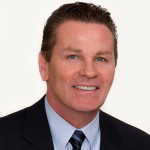Larry Starr’s Sarasota area and beyond vacation rental and real estate background make him an expert in his field.
Larry Starr, Sarasota real estate developer and the owner of Resort Vacation Accommodations (RVA), a company that offers vacation rentals in Sarasota and the surrounding areas, gives some valuable insight about Sarasota. According to Larry Starr, Sarasota and it’s barrier islands such as Longboat Key, Siesta Key, Lido Key and Anna Maria Island make it ideal destination for vacationers.
Interviewing Experts: Welcome, and thank you for being here today.
Larry Starr Sarasota RVA: The pleasure is mine. What can I tell you about my favorite place in the world?
Interviewing Experts: To begin with, I have never stayed in a rental home for any of my vacations, only hotel rooms. What are some of the most important questions I need to ask before I book one of your vacation homes?
Larry Starr Sarasota RVA: Well, it’s important to know about the rental’s location. For example, if you are booking a beach home, you should know how close to the beach your rental home is. Will you have to walk for ten minutes or cross a busy street with children to get to the beach? You should always ask about details. Asking about amenities such as a pool or number of bedrooms and baths is also important.
Interviewing Experts: What household amenities usually come with one of the Larry Starr Sarasota area rentals from RVA?
Larry Starr Sarasota RVA: All of our rentals are fully furnished. We offer linens, blankets, pillows, appliances, and just about every thing that a permanent residence would have. Many of our properties offer Wi-Fi and premium cable channels.
Interviewing Experts: What activities would you suggest for visitors traveling to Longboat Key?
Larry Starr Sarasota RVA: The opportunities are endless. Let’s see, to name just a few, angling, shelling, biking, shopping, hiking, canoeing, fishing, dining, swimming, and so much more.
Interviewing Experts: What type of Larry Starr Sarasota areavacation rentals can one expect to find in the area?
Larry Starr Sarasota RVA: We offer condominiums, private vacation homes and resorts. We have one, two and three bedroom units, as well as some luxury estates.
Interviewing Experts: What other things can vacationers do in Sarasota and its’ surrounding islands?
Larry Starr Sarasota RVA: Longboat and Lido Key are just minutes away from all or the many cultural attractions of Sarasota. Siesta Key was recently named the number one beach in the world. Sarasota has a theater and an arts district. It’s a very glamorous city with world-famous shopping, but at the same time Sarasota has a completely relaxed lifestyle.
Larry Starr ’s Sarasota vacation rental and real estate background has been a major part in his success throughout his career. In addition to Resort Vacation Accommodations, Larry Starr also owns AutoXotic, a luxury vehicle company that offers rental and ownership program designed with the thrill seeking vacationer in mind. This Larry Starr Sarasota based firm specializes in bringing exotic vehicles to those who don’t want to own them full time.




